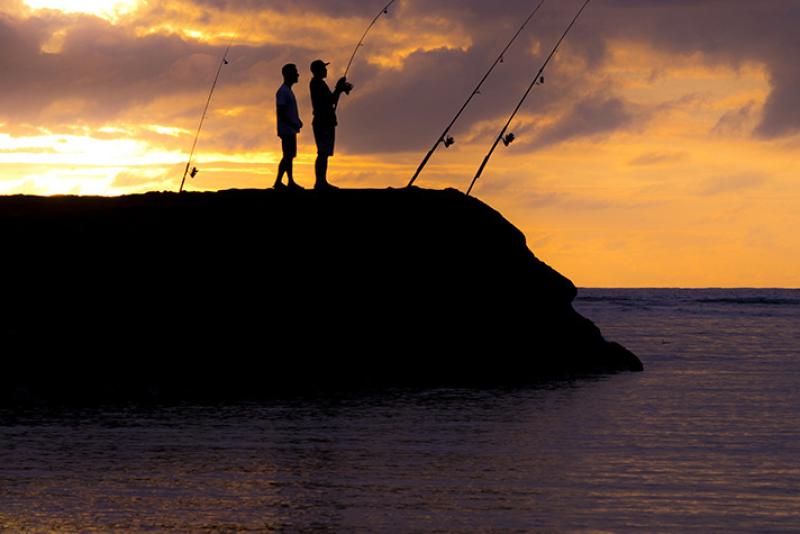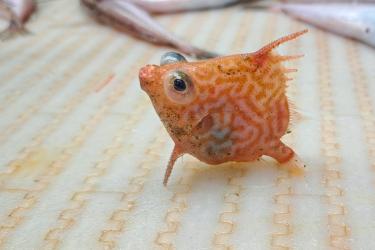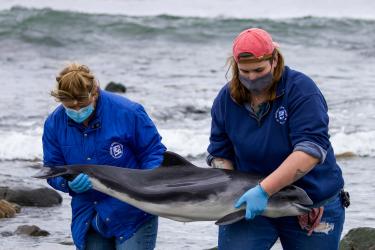NOAA Fisheries published its 2024 priorities for saltwater recreational fishing data collection. These priorities support unique regional needs as well as stock assessments and sustainable fisheries management nationwide. This implementation plan guides the collaborative work of the state-regional-federal partnership that develops, improves, and implements a national network of recreational fishing surveys.
“This will be an important year for the partnership,” said Dr. Katherine Papacostas, NOAA Fisheries’ Office of Science and Technology Marine Recreational Information Program branch chief. “The priorities we’ve collectively identified in this plan are intended to get us closer to our shared goals of improving the performance of federal and state recreational fishing surveys, enhancing the quality and reliability of recreational catch and effort estimates, and promoting best practices for using the data.”
This plan includes regional data collection priorities developed by teams composed of regional fisheries information networks, regional fishery management councils, interstate marine fisheries commissions, state partners, and NOAA Fisheries.
2024 Priorities at a Glance
- Conduct a large-scale follow-up study on our Fishing Effort Survey to inform potential design modifications to improve respondent reporting accuracy and resulting effort estimates
- Complete an analysis of a Large Pelagics Survey redesign
- Continue working with our partners to promote survey consistency and data quality
- Draft guidance documents for partners, including guidance on planning for survey transitions when multiple survey modifications and improvements are pending, as well as how to mitigate the potential disruption to fisheries management caused by continuous survey improvements and resulting updates to historical catch and effort estimates
- Develop detailed cost estimates for addressing partner needs for data products that can support in-season management for priority species in some regions, greater precision, and more timely production of catch and effort estimates
- Continue to prioritize support to our partners to assist them in meeting their unique recreational fishing regional data needs, including providing technical support and guidance, as well as funding for state-led surveys and other program initiatives
- Continue our efforts to certify state surveys on the West Coast; certified surveys are prioritized to receive program funding
- Collaborate with Atlantic and Gulf marine fisheries commissions to conduct trial survey implementation and estimate review workshops to strengthen the estimate review process and improve coordination
- Continue conversations with key partners to obtain feedback on a renewed vision for the partnership
“Central to this plan is the desire to strengthen relationships with our partners and work toward a renewed state-regional-federal data collection partnership,” said Papacostas.
In addition to the 2024 priorities, this plan also provides an overview of the program’s accomplishments during the last year.
2023 Key Accomplishments
- Implemented new fishing-year options in our query tool for catch, effort, and length-frequency queries in addition to the traditional calendar-year option; fishing-year options were added to support data users who manage fisheries that don’t align with the calendar year, reducing the need for them to produce custom estimates
- Completed the Large Pelagics Pilot Study and began preparations for certification and implementation of the new Large Pelagics Survey design
- Supported implementation of tablet-based dockside interviews for the Alabama Department of Conservation and Natural Resources’ Snapper Check program by providing funding for development and testing
- Published our first biennial report that provides an update from our 2021 Marine Recreational Information Program Plan for State Partnerships; developed in close consultation with regional partners, it identifies multiple collaborative opportunities for improving recreational fisheries data quality
- Collaborated with partners in Alaska, the Atlantic, and the Pacific to update their regional implementation plans that outline regional data collection priorities over the next several years
- Certified several state-sponsored recreational fishing surveys on the West Coast


